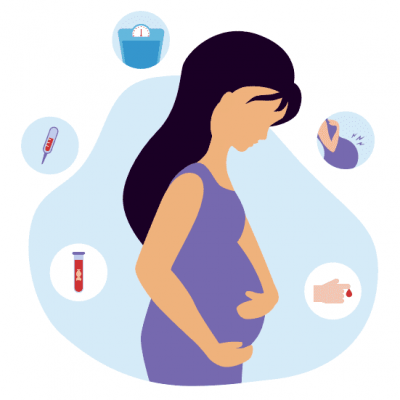01
Polycystic Ovary Syndrome
Polycystic Ovary Syndrome (PCOS) is the leading cause of infertility in women. It is associated with irregular cycles and hyperandrogenism, but because it is predominantly an endocrine disorder, it has several associated comorbidities such as diabetes, obesity and cardiovascular disease.
While it is estimated that 1 in 5 women worldwide are affected, this number is likely higher due to the multifactorial nature of this disorder masking accurate diagnosis.











































